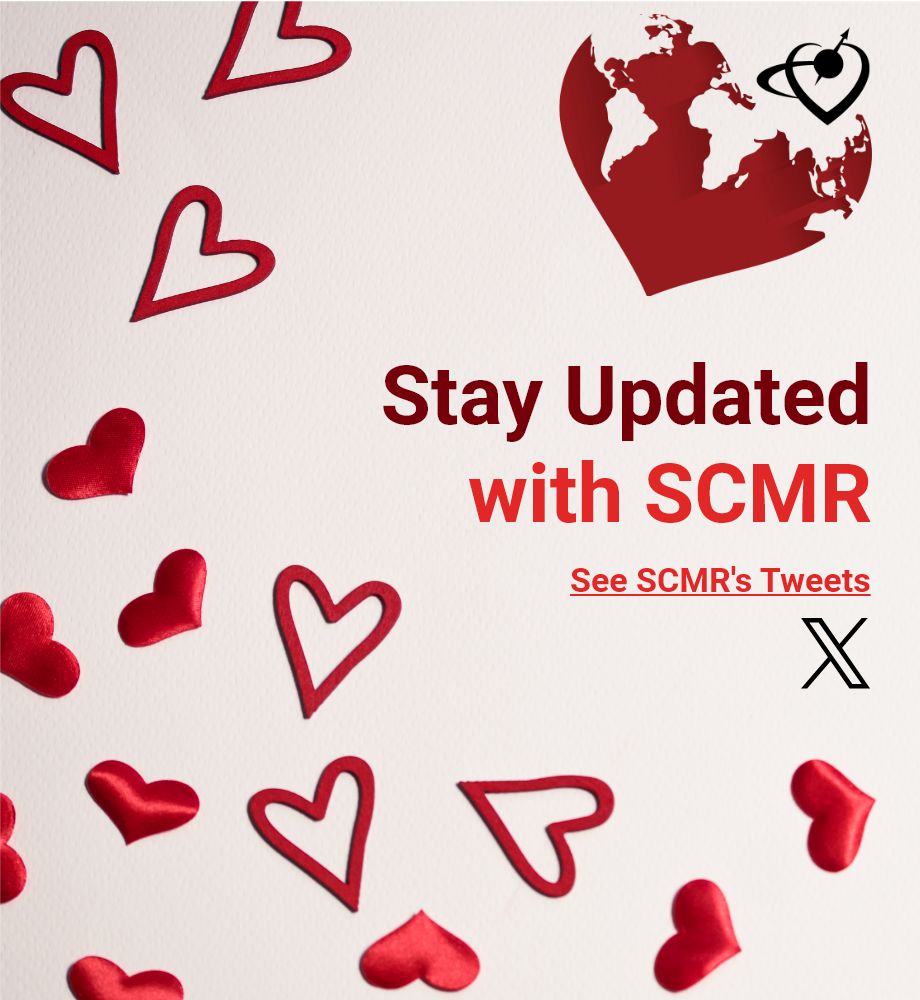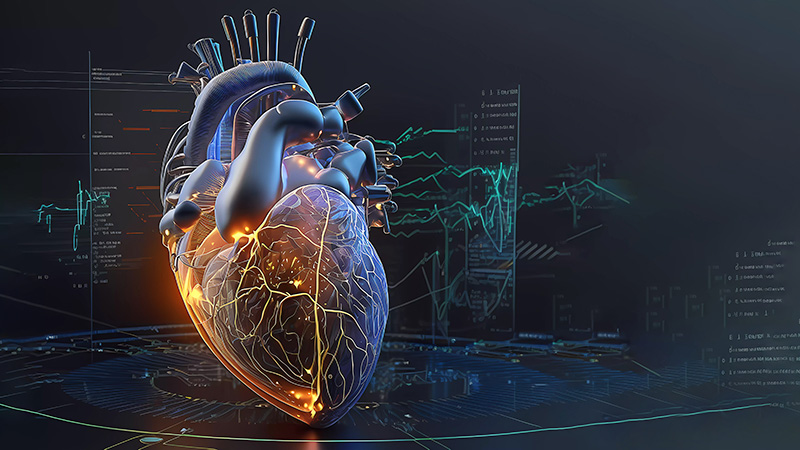| VERIFICATION FEES | ||||
| TECHNOLOGIST | Initial verification of skills | For Level I verified members | For Level II verified members | |
| Level 1 – member rate | $ 25 | |||
| Level 1 – non-member rate | $ 50 | |||
| Level 2 – member rate | $ 50 | $ 25 | ||
| Level 2 – non-member rate | $ 100 | $ 50 | ||
| Level 3 – member rate | $ 75 | $ 50 | $ 25 | |
| Level 3 – non-member rate | $ 150 | $ 100 | $ 50 | |
| Grandfathering – Members | $ 75 | |||
| Grandfathering – Non-members | $ 100 | |||
If you are already SCMR verified and looking to move onto the next level, please go to the “already SCMR verified” section below in order to start the next verification level. Please be prepared to provide your previous SCMR verification certification.
PLEASE NOTE: Letter of Verification Applications are reviewed on the first of every month and can take up to 8 weeks to process. No applications will be reviewed until ALL documentation is received.
Level I Mentor Letter
Level II Mentor Letter
Level III Mentor Letter
Grandfather Level III Mentor Letter
Level I
This CMR training should be conducted under the supervision of a Level 2 or Level 3 (preferred) physician and/or technologist. It is recommended that initial training should consist of observing at least 10 CMR studies. After the observation period, a minimum of 30 CMR exams is needed to acquire Level 1 CMR skills. Only cases performed as the primary scanner operator should be counted towards this competency. Although the length of time needed to achieve Level 1 skills may vary by center CMR volume, in general, it should take 4 weeks total. See additional recommendations below.
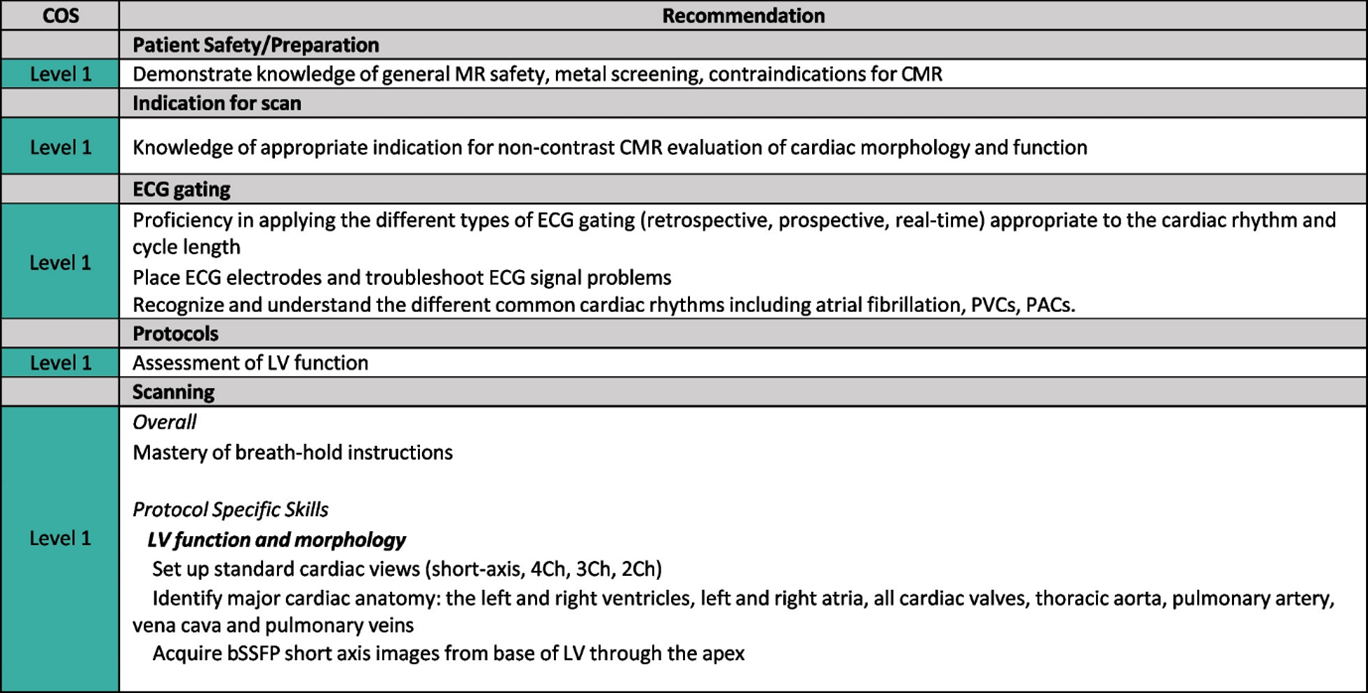
PLEASE NOTE: Letter of Verification Applications are reviewed on first of every month and can take up to 8 weeks to process.
Level II
This CMR training should be conducted under the supervision of a Level 2 or Level 3 (preferred) physician and/or technologist. CMR technologist with Level 2 skills can be expected to perform post-contrast examinations, including myocardial viability, assessment of heart failure and infiltrative cardiomyopathies, hypertrophic cardiomyopathy, myocarditis, arrhythmogenic cardiomyopathy, pericardial disease and assessment of cardiac masses. As this level of competency is significantly broader than Level 1, it is recommended that performing at least 150 CMR exams is needed to acquire Level 2 CMR skills. Although the length of time needed to achieve Level 2 skills may vary by center CMR volume, 4 months of CMR imaging is recommended. See additional recommendations below.
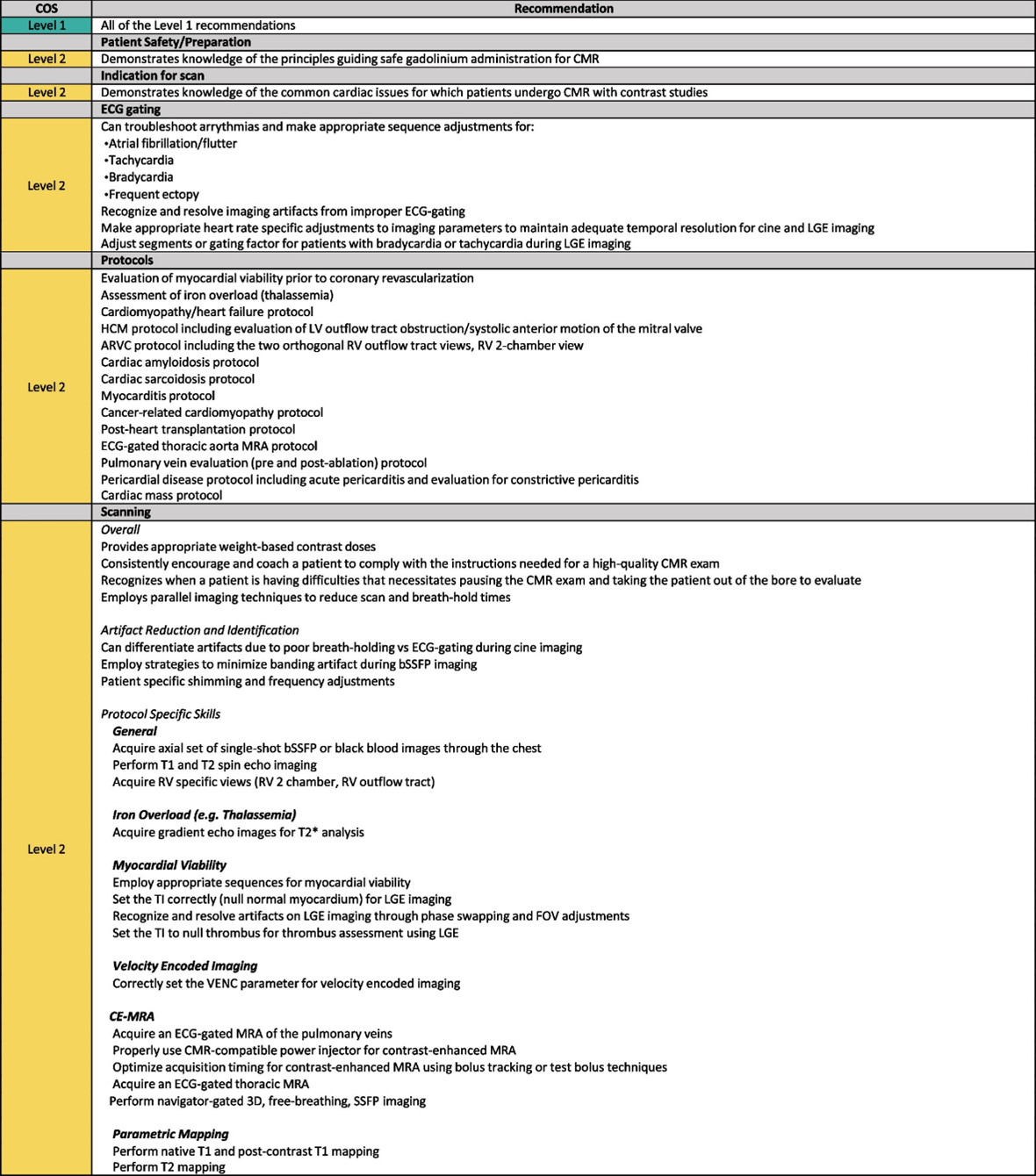
Level III
This CMR training should be conducted under the supervision of a Level 3 physician and/or technologist. As these CMR scans are inherently more complex, the CMR technologist will need a more advanced knowledge of cardiac anatomy and physiology, in addition to possessing a solid understanding of the interplay of different CMR sequence parameters that govern temporal and spatial resolution, SNR, and scan duration. The CMR technologist with Level 3 skills should be able to adjust or change the scan protocol based on cardiac findings observed during the CMR exam. The Level 3 technologist should be able to provide preliminary findings of the CMR exam to the attending physician. It is recommended that at least 300 CMR exams are needed to acquire Level 3 CMR skills. Although the length of time needed to achieve Level 3 skills may vary by center CMR volume, 6 months of CMR imaging is recommended. See additional recommendations below.
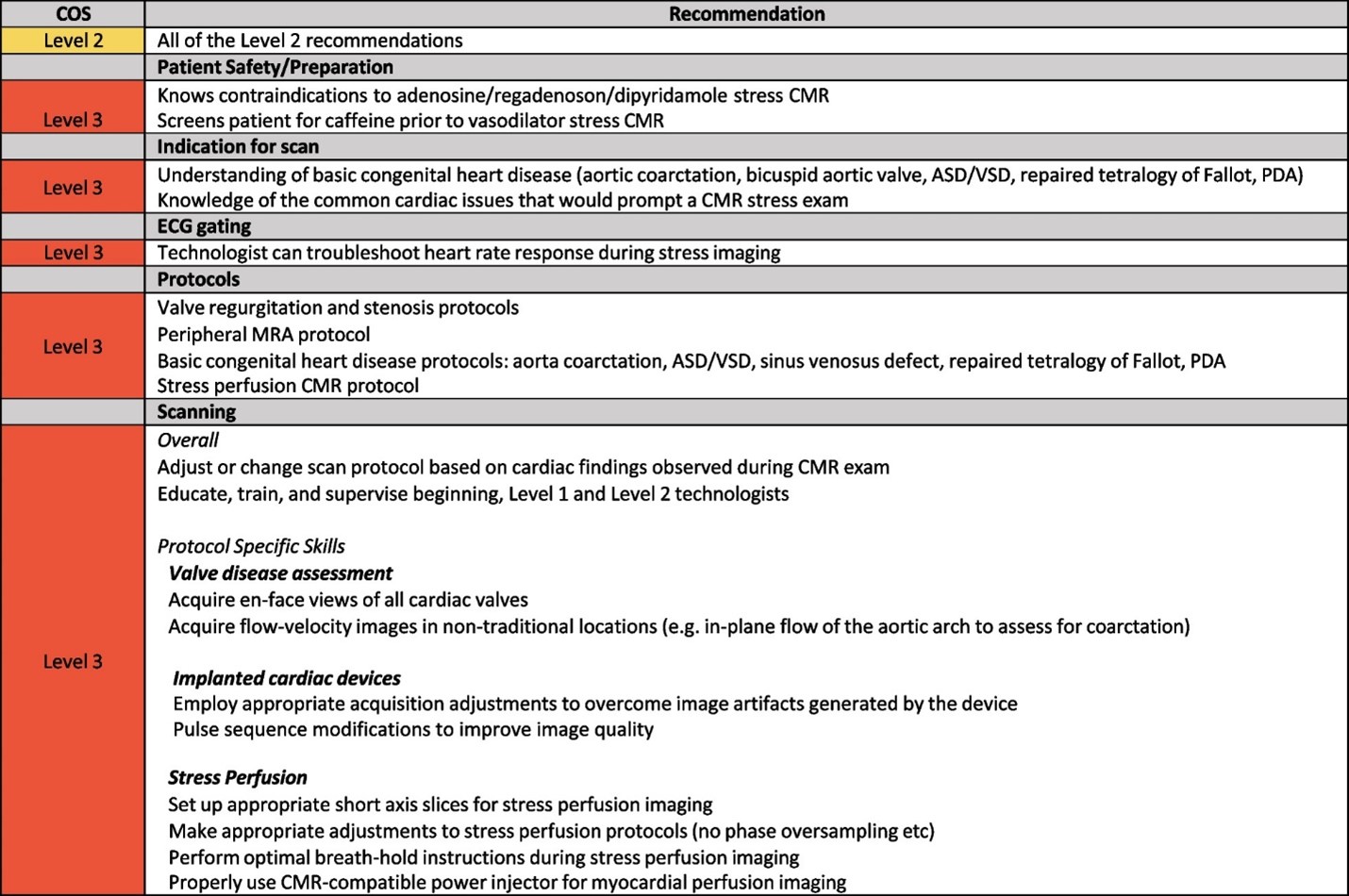
Grandfathering: NOW OPEN!
This pathway is to be able to recognize a MR technologist that has achieved technical expertise of Level 3 with at least 5 years of experience in CMR by attestation from a qualified mentor. This is equal to Level 3 but without the requirement to complete Levels 1 and 2. This is for technologists with years of experience and will only be available until July 2027. After that date, all applicants will be required to complete each level sequentially.
For the legacy pathway, a qualified mentor could be a current Medical Director of CMR program, a chair of Cardiology or Radiology Department, a SCMR or ECVI verified level II or III physician, or a Lead CMR Technologist with Level 3 skill verified by SCMR. Qualified mentors must attest to a working relationship with the technologist.
Documentation Required:
ALL REQUIRED DOCUMENTS MUST BE SUBMITTED AS ONE PDF FILE.
- Copy of active technologist license
- Curriculum Vitae
- Cover letter
- Mentor letter
PLEASE NOTE: Letter of Verification Applications can take up to 8 weeks to process.
Already SCMR Verified
If you are already SCMR verified and looking to move onto the next level, please select the correct level below in order to start the next verification level. Please be prepared to provide you previous SCMR verification certification.
Verified Level I, starting Level II
Verified Level I, starting Level III
Verified Level II, starting Level III






